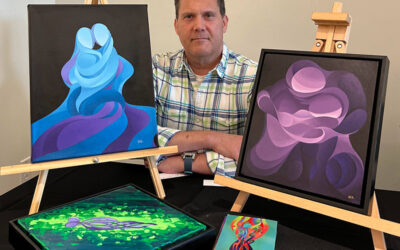By Sarah Zobel Homelessness Resource Center August 3, 2015
In the wake of the Sandy Hook Elementary School tragedy—and with frequent news reports of people with mental illnesses being shot by police, committing suicide in very public ways, or living on the streets—some feel that the media has dichotomized a significant portion of the U.S. population into predators or victims, with no grey area. But a new organization, Recovery Now!, is working to change that.
“We were concerned that it’s very difficult in the mainstream media to see positive portrayals of people with mental health issues—maybe on some TV shows, but overall, the media coverage is pretty one dimensional,” says Leah Harris, Recovery Now! campaign coordinator and director of communications at the Washington, DC, Bazelon Center for Mental Health Law. “We felt the need to say, ‘This is not the whole story.’ People can and do recover. People can and do overcome all different kinds of behavioral health challenges, and that is a story that’s not being told.”
Recovery Now! was born at the 2014 conference of the New York Association of Psychiatric Rehabilitation Services (NYAPRS), where a group of attendees agreed that it was time to address some of the many misconceptions surrounding behavioral health. Made up of people in recovery, advocates, family members of loved ones with mental health conditions, and concerned community members—and with a campaign steering committee that includes Bazelon, Mental Health America, the National Coalition for Mental Health Recovery, NYAPRS, and the National Association of County Behavioral Health and Developmental Disability Directors—Recovery Now! has a wide base. As a starting point, its members chose to further increase understanding of the meaning of “recovery,” publishing opinion pieces in major newspapers, using social media to raise awareness, and inviting people to share their stories.
“We’re really trying to get to the mainstream press and that’s been harder because, frankly, the rule is, if it bleeds, it leads,” says Harris. “And stories of everyday people living their lives after struggling with substance use or mental health conditions—it’s just not as sexy as someone committing a crime. Our stories rarely make the front page, but we’re working on that. We’re trying to develop relationships with the press, because that is the critical piece that’s been missing.”
Recovery Now! is also creating issue briefs and building its website, which Harris says is meant to be a resource for anyone who’s interested in recovery, whether an individual working on it or a journalist reporting on it. Like mental illness, recovery is poorly understood, she says, adding that people don’t always grasp that it’s an ongoing process, or that there’s no one-size-fits-all approach to it.
“It’s really about a process of change, where people live a life that they feel in control of—their life is self-directed, they are invested in their well-being, they’re part of a community of some kind or they’re living in the community,” says Harris. “We even have to do the work of helping people understand what is meant by ‘recovery.’ I don’t care if you call it recovery, healing, managing your condition—whatever makes the most sense to you—it’s about the fact that there’s hope. That’s really the bottom line.”
Harris knows what she’s talking about: she has a multigenerational history of mental illness on both sides of her family. Her mother experienced homelessness and cycled among prison, institutions, and the streets, and both of her parents died young as a result of their illnesses. Harris was in and out of the mental health and criminal justice systems herself as a teen, receiving five different diagnoses and struggling with suicidal tendencies.
“When I was an adult, I found out about the idea of recovery and it changed my life, because I’d never heard those kinds of positive messages before,” she says. “I just had heard that you can’t hope for too much, that you have to keep your life small and simple so you don’t trigger your symptoms—those were the kinds of things I was told. My parents were told the same.”
Recovery Now! is beginning the work of advocating for changes in the U.S. mental health system that will allow more people to experience recovery. That means ensuring access to services including permanent supportive housing and treatment, and to education and employment opportunities.
“Recovery is possible, and there are concrete supports and services and ways of working with people that foster recovery,” says Harris. “We want to show that recovery is not just for someone who’s been a little bit depressed. It’s really for everyone.”
http://homeless.samhsa.gov/Resource/August’s-Web-Content-Theme-is-Mental-Health-Awareness-56657.aspx



